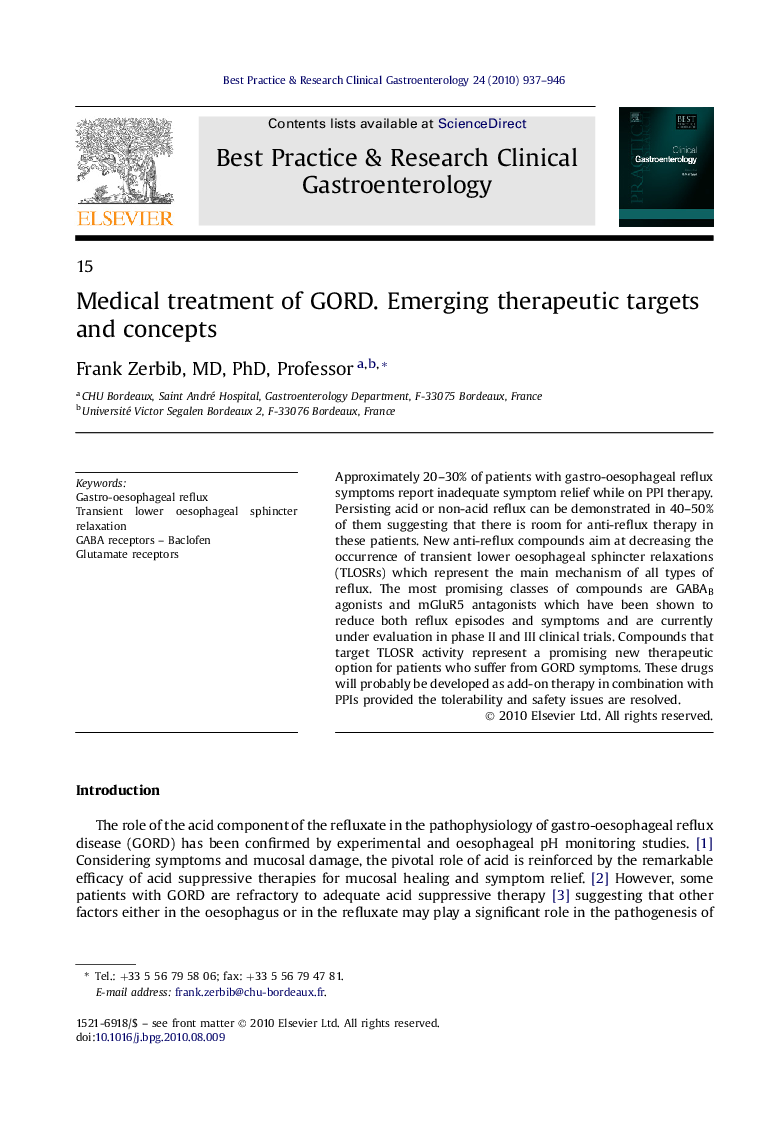| Article ID | Journal | Published Year | Pages | File Type |
|---|---|---|---|---|
| 3254385 | Best Practice & Research Clinical Gastroenterology | 2010 | 10 Pages |
Approximately 20–30% of patients with gastro-oesophageal reflux symptoms report inadequate symptom relief while on PPI therapy. Persisting acid or non-acid reflux can be demonstrated in 40–50% of them suggesting that there is room for anti-reflux therapy in these patients. New anti-reflux compounds aim at decreasing the occurrence of transient lower oesophageal sphincter relaxations (TLOSRs) which represent the main mechanism of all types of reflux. The most promising classes of compounds are GABAB agonists and mGluR5 antagonists which have been shown to reduce both reflux episodes and symptoms and are currently under evaluation in phase II and III clinical trials. Compounds that target TLOSR activity represent a promising new therapeutic option for patients who suffer from GORD symptoms. These drugs will probably be developed as add-on therapy in combination with PPIs provided the tolerability and safety issues are resolved.
